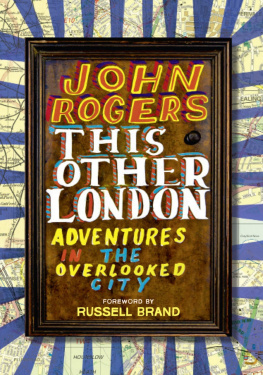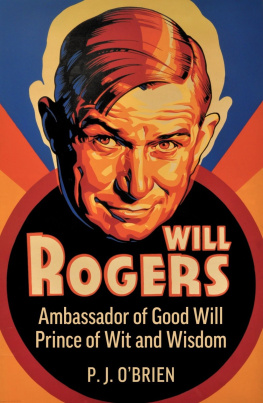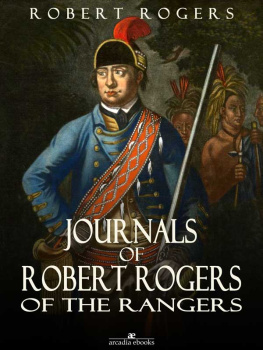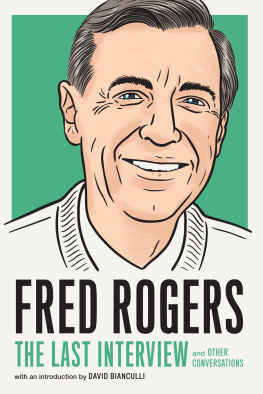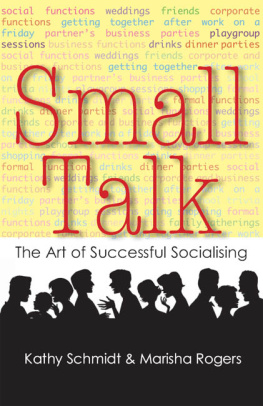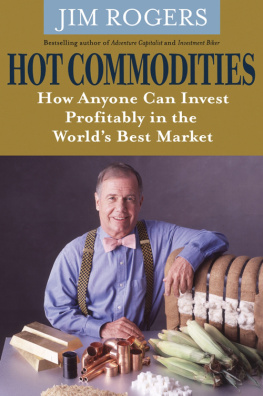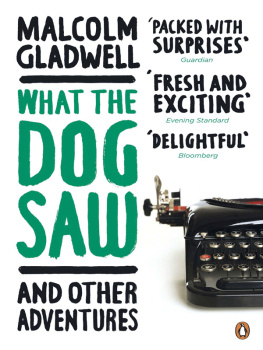John Rogers - This Other London: Adventures in the Overlooked City
Here you can read online John Rogers - This Other London: Adventures in the Overlooked City full text of the book (entire story) in english for free. Download pdf and epub, get meaning, cover and reviews about this ebook. year: 2013, publisher: HarperCollins, genre: Art. Description of the work, (preface) as well as reviews are available. Best literature library LitArk.com created for fans of good reading and offers a wide selection of genres:
Romance novel
Science fiction
Adventure
Detective
Science
History
Home and family
Prose
Art
Politics
Computer
Non-fiction
Religion
Business
Children
Humor
Choose a favorite category and find really read worthwhile books. Enjoy immersion in the world of imagination, feel the emotions of the characters or learn something new for yourself, make an fascinating discovery.
- Book:This Other London: Adventures in the Overlooked City
- Author:
- Publisher:HarperCollins
- Genre:
- Year:2013
- Rating:4 / 5
- Favourites:Add to favourites
- Your mark:
- 80
- 1
- 2
- 3
- 4
- 5
This Other London: Adventures in the Overlooked City: summary, description and annotation
We offer to read an annotation, description, summary or preface (depends on what the author of the book "This Other London: Adventures in the Overlooked City" wrote himself). If you haven't found the necessary information about the book — write in the comments, we will try to find it.
John Rogers: author's other books
Who wrote This Other London: Adventures in the Overlooked City? Find out the surname, the name of the author of the book and a list of all author's works by series.
This Other London: Adventures in the Overlooked City — read online for free the complete book (whole text) full work
Below is the text of the book, divided by pages. System saving the place of the last page read, allows you to conveniently read the book "This Other London: Adventures in the Overlooked City" online for free, without having to search again every time where you left off. Put a bookmark, and you can go to the page where you finished reading at any time.
Font size:
Interval:
Bookmark:

For Heidi, Oliver and Joseph

John Rogers is an important person in my life. As well as being one of my best friends he serves as a navigational point in musings and conversations. Often when discussing the non-negotiable nature of sin my mates and I will say, Well what would John Rogers do? As you will learn in these pages John lives in Leytonstone with his two sons and his wife, Heidi, and in spite of the inferred domesticity of that set-up he is a man who lives on societys margins. Not through occultism or deviance but through his astonishing ability to accumulate and more importantly relay extraordinary information. He is like Prospero crossed with Mr Chips.
I met John in London whilst participating in one of the many half-arsed sub-fringe sketch shows that go on in the capital. We were performing at Riverside Studios in Hammersmith where they used to make TFI Friday. It quickly became clear that the show we were involved in would yield very little and equally clear that John would become a friend for life. John is endowed with a gentle, humble, humorous wisdom, which is evident throughout these pages. You can learn from John on topics as diverse as Marxism, botany, football, punk, astronomy, gastronomy and love. However where John really comes to life is when perpendicular with his boots on. I mean when hes walking, we dont have a physical relationship.
Someone once described being in love as like finding a secluded ballroom in the house in which youd always lived. To walk through London with John is like that. The city is suddenly alive with concealed plaques, submerged rivers and unnoticed gargoyles. John is like an alchemist, not only in that he is unkempt and dresses like a person who has fallen through the cracks, he also makes the mundane and unremarkable glow with newly imbued magic. We once walked through my hometown of Grays in Essex, past the ambulance station at the top of our street, and I instinctively jumped on the knee-high wall to stroll along it as Id always done as a child. When I told John who was beside me, he said that we could consider memories of a place as objects: left strewn about until we return to collect them.
Once when I was staying on The Strand John, like the tangle-haired shrub shaman that he is, knew all manner of secret doors and passageways that lay unchecked on Fleet Street. We walked through an old, creaking oak door and were suddenly in the quads of Temple. John knew it was there and didnt care if we were allowed in. This, in fact, is where we saw Thatcher watering roses just months before her death. We went into Lincolns Inn, which I never knew existed, and it was like falling down a time tunnel. Not least because a costume drama was being made. Past Aldwych John described two stone giants that adorned a church now used primarily for Romanians, telling me how Gog and Magog were Britains Romulus and Remus.
Sometimes I think he knows everything. Like most people who are truly wise he never makes other people feel small for not knowing something. John patiently smiles as I tell him all about stuff he knows much more about than me then nods and gently puts me straight. This charming and engaging didacticism is abundantly present in his first book. I am excited that through his writing a wider audience can now share in the joy of John Rogers. That now thousands will, as I have done, begin to understand the character of place, the relevance of history and, most importantly, that adventure is right outside your front door if youre prepared to take the first step. You, like me, could have no better guide than the man who has written this book.
Exploration begins at home
Pathfinder, Afoot Round London, 1911
Backpacking in Thailand in my early twenties I climbed down off an elephant in a small village in the mountains of the Golden Triangle. The streets of 1994 East London felt far away I had broken free for new horizons. I entered a small wooden hut where a villager prepared freshly mashed opium poppy seeds in a long pipe. In Hackney such men were called drug dealers here they were known as shamans. Across the rooftop of the world on an elephant, I wrote in my travel journal. The flight to Bangkok had been the first time Id been on a plane; my previous travels hadnt extended beyond a coach trip to Barcelona. The top of this mountain was the edge of my known world the real beginning of an adventure.
In the gloom of the hut was another group of travellers fellow explorers and adventurers. I spoke to the pale, willowy girl sitting next to me, dressed in baggy tie-dye trousers, a large knot of holy string on her wrist from a long pilgrimage around India. She told me stories about an ashram in the Himalayas and gave me the address of a man with an AK47 who could smuggle me across the border into Burma. A few more minutes conversation revealed that this wise-woman of the road was an accountant on sabbatical who lived two doors down from my sister in Maidenhead. I had come 6,000 miles to a remote mountainous region to sit in a shack with a group of Home Counties drop-outs chatting about a new Wetherspoons in the High Street.
Hostel dorms were full of wanderers who claimed to have discovered beaches and villages merely because they werent in the latest Lonely Planet Guide, ignoring the fact people were already living there. Seemingly there was nowhere left to discover, the whole world was very much ON the beaten track. I spent two years bunkered down on Bondi Beach but longed for windswept, collars-up London evenings, to be in this city indifferent to the whims of the individual, a slowly oscillating hum of existence, to feel millennia of history squelching beneath wet pavements. I also missed a decent pint of beer that wasnt served in a glass chilled to the point that it stuck to your lips.
Returning to London and eventually starting a family didnt mean settling down. I usually wear walking boots and carry a waterproof jacket just in case I spontaneously head off on a long schlep towards the horizon. Ive remained on the move.
One Sunday winter evening I travelled five stops on the Central Line from Leytonstone to Liverpool Street to walk along the course of the buried River Walbrook. I didnt see a soul until I popped into Costcutter on Cannon Street to buy a miniature bottle of Jack Daniels to drink on the pebble beach of the Thames beside the railway bridge. The backpacker trail had been as congested as the rush-hour M25, whereas the pavements above a submerged watercourse running through the centre of one of the biggest cities in the world were deserted. If Id taken an afternoon stroll in the Costwolds Id have been tripping over ramblers at every field stile, but here I had the streets to myself, the only other people I saw were the snoozing security guards gazing into banks of CCTV monitors. This walk, inspired by an old photo Id seen in a book bought in a junk shop of a set of wooden steps leading down from Dowgate Hill, had led me to a land twenty minutes away from my front room more mysterious than anything Id encountered in Rajasthan or the Cameron Highlands.
Randomly flicking through the pages of an old Atlas of Greater London a new world revealed itself. The turn of a wad of custard yellow pages and there was Dartford Salt Marsh reached by following the Erith Rands past Anchor Bay to Crayford Ness. Skirt the edge of the Salt Marshes inland along the banks of the River Darent, down a footpath you find yourself at the Saxon Howbury Moat.
Font size:
Interval:
Bookmark:
Similar books «This Other London: Adventures in the Overlooked City»
Look at similar books to This Other London: Adventures in the Overlooked City. We have selected literature similar in name and meaning in the hope of providing readers with more options to find new, interesting, not yet read works.
Discussion, reviews of the book This Other London: Adventures in the Overlooked City and just readers' own opinions. Leave your comments, write what you think about the work, its meaning or the main characters. Specify what exactly you liked and what you didn't like, and why you think so.

